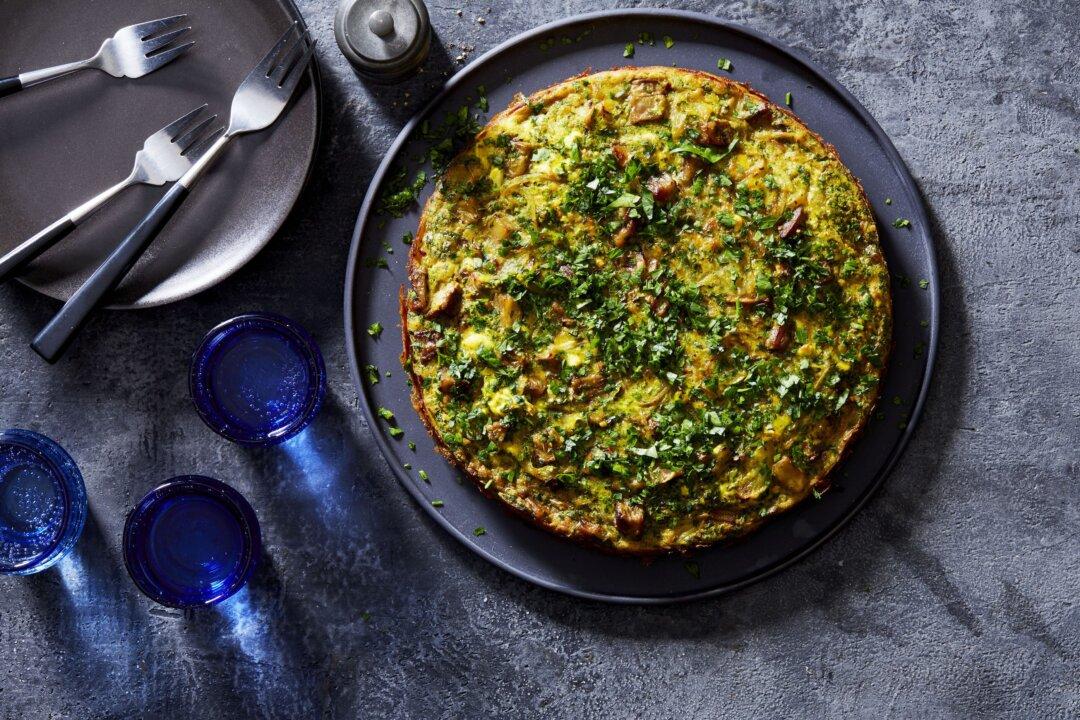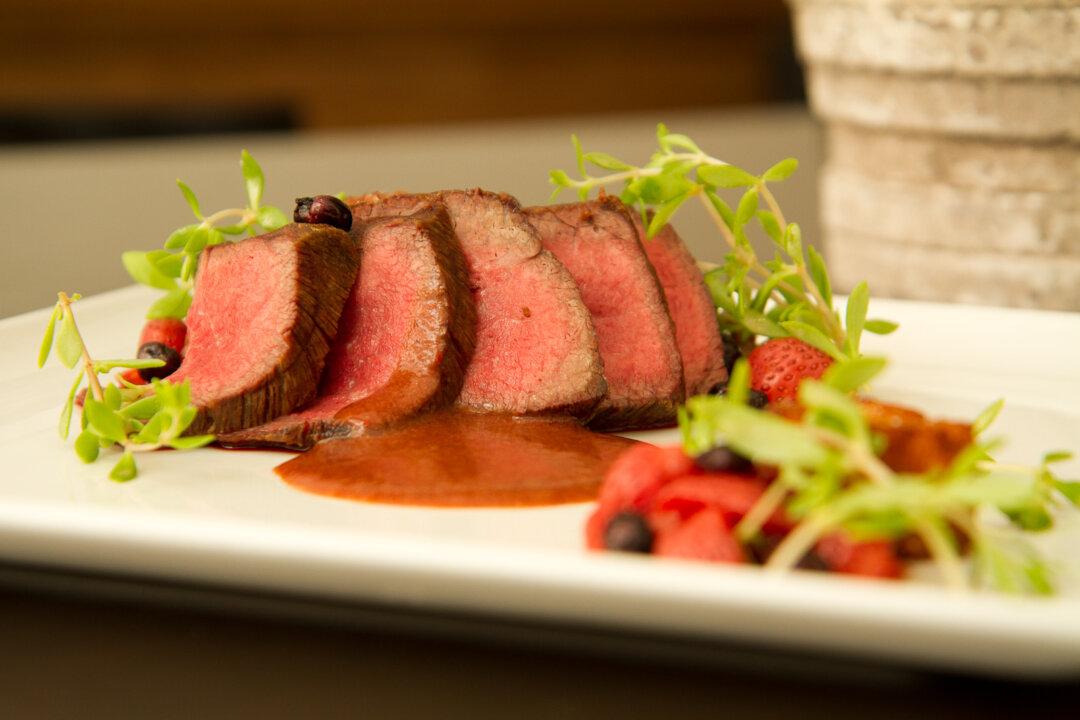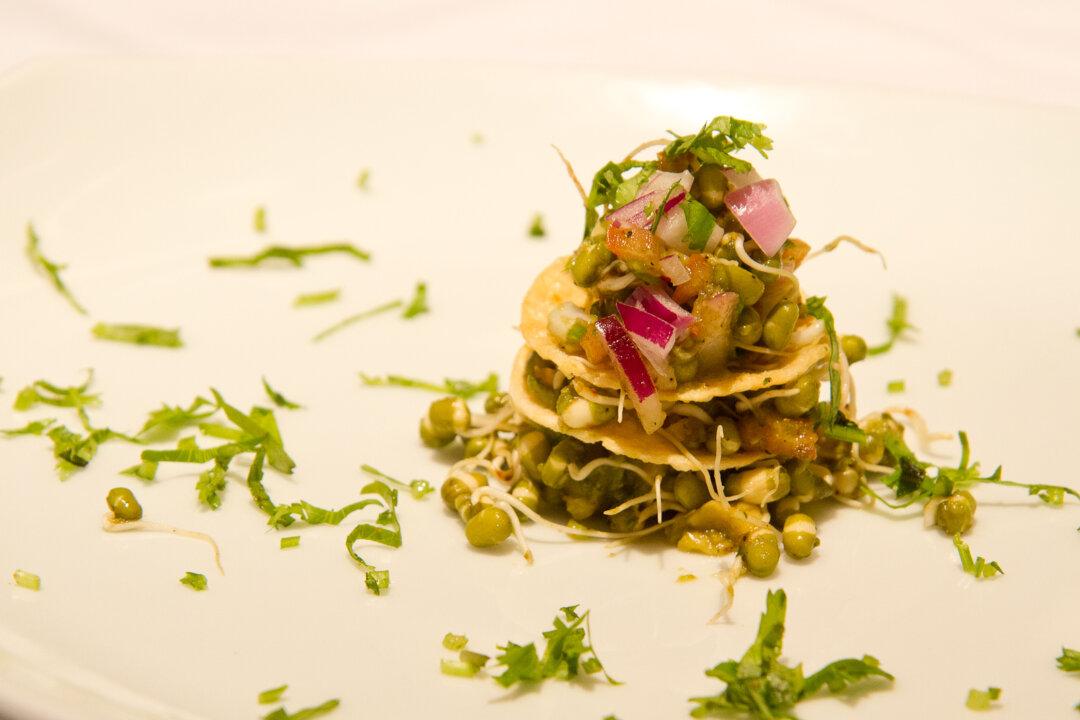This Persian take on a frittata is packed with bites of creamy sauteed eggplant and a bundle of fresh, green herbs. A kuku is rarely out of place on an Iranian-Jewish table. It is usually served as part of the mezze spread or as a side dish, but it is hearty enough to stand alone as a main course, particularly at vegetarian meals. It can often be found at a festive Purim meal, in commemoration of the biblical story of Esther, which took place in ancient Persia. And thanks to the generous amount of oil that goes into a kuku, it is also a favorite dish for Hanukkah celebrations.
Serves 6
- 1/3 cup vegetable oil, plus more for the pan
- 2 medium onions, halved through the root and thinly sliced
- Kosher salt and freshly ground black pepper
- 1 small eggplant (about 1 pound), peeled and cut into 1/2-inch pieces
- 7 eggs
- 2 tablespoons all-purpose flour
- 1 teaspoon baking powder
- 1/2 cup finely chopped fresh flat-leaf parsley
- 2 tablespoons chopped fresh oregano
- 4 garlic cloves, minced or pushed through a press
- 1 teaspoon ground turmeric
- 1 teaspoon onion powder
- 1/4 teaspoon red pepper flakes
- 3 ounces feta, finely crumbled (optional)





